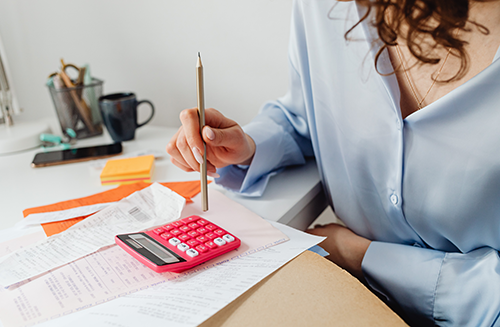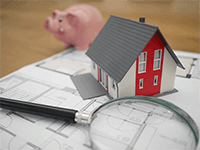
Having defaults on your credit report can impact your ability to get accepted for finance and it can mean you get less favourable terms. But, it’s not impossible to get a secured loan with bad credit. In this blog, we highlight whether it may be achievable for you.
Understanding defaults
Defaults are important to understand, as they directly affect your creditworthiness and can make the loan application process much harder.
What are defaults?
Defaults occur when borrowers fail to fulfil their financial obligations and their creditor chooses to close their account down. This usually will happen after you have missed several payments, rather than just one or two.
Normally, you will be sent a default notice from your creditor. This is used to tell you to pay the balance you owe, otherwise you risk your account being closed down.
Factors contributing to defaults
Defaults can happen for a number of reasons. It could be due to:
- Unexpected money problems;
- Losing a job;
- Medical emergencies;
- Not handling money properly.
Getting one can have an impact on your credit history. They can lead to a lower credit score, which can make it harder to get other loans in the future.
Lenders see defaults as a sign that you could be a potential risk, so they may be less likely to approve your application. If you are accepted, you may be charged higher interest rates and there may be fewer options.
Secured loans and defaults
Secured loans let you borrow money by using your home as security against the loan. This acts as a form of protection for the lender. If you don't repay the loan, the lender can take your property to recover the costs they incurred from lending to you.
Using an asset as security lowers the risk for lenders, meaning they may be more relaxed about who they lend money to. Therefore, if you have defaults on your credit file, you may find you have a better chance of success using this option.
That said, interest rates may be higher and there may be fewer options available, as not all lenders will be happy to lend to people in this situation.
Before you get this option, you need to think carefully about whether it is affordable, particularly as your property could be at risk if you fail to repay the loan.
Dos and don'ts when applying for a secured loan with defaults
When applying for a secured loan with defaults, it’s important to know the do's and don'ts to improve your chances of approval. Keep the following tips in mind to present yourself as a strong and reliable borrower.
Do:
- Provide accurate and complete information on your loan application.
- Explain the circumstances that led to the default. It’s important to be transparent and honest.
- Make sure your finances are stable, so you can prove you would be able to repay the loan.
- Seek pre-approval or pre-qualification to understand your eligibility before submitting any formal loan applications.
Don't:
- Apply for multiple loans simultaneously, as it can raise concerns for lenders.
- Try to borrow more money than you can comfortably afford to pay back.
- Misrepresent your financial situation, as this can cause problems further down the line.
- Hide information about your defaults, as lenders will always find this out when running a credit check on you.
Common questions we are asked
Can I get a secured loan if I have defaults on my credit report?
Even if you have defaults on your credit report, it may still be possible to get accepted. By using your home as security, you lower the risk for lenders. Due to this, lenders may be more relaxed with their criteria, which could boost your chance of being approved.
However, it’ worth bearing in mind that you may have access to fewer options and the interest rates may be higher to balance the risk for lenders.
How do defaults impact my chances of getting a secured loan?
Defaults can affect your chance of getting approved, as they show lenders you could be a risky person to lend to. If you are accepted, you may find that you are charged higher interest rates or have stricter loan conditions.
What steps can I take to improve my eligibility for a secured loan despite having defaults?
To increase your chances of getting accepted, follow these steps:
- Try to improve your credit score and history by paying off debts, making timely payments, and fixing any mistakes on your credit report.
- Make sure you can clearly explain the reason for the default. If you can give an explanation, lenders will be able to understand the circumstances that led to it better.
- Show your lender you have a steady income and can afford to repay your loan.
- Get help from your existing creditors or consult a debt charity. They may be able to help guide you and give you tips on how to improve your financial situation moving forwards. MoneyHelper and Citizens Advice Bureau can offer free advice, so they could be a good place to start.
Summary
Getting a secured loan with defaults may be hard, but it’s not impossible. Remember, each lender has different criteria, so it's important to research and find the right lender for your specific situation. With determination and the right plan, you may be able to get the funding you need and begin your path toward stability.
Think carefully before securing other debts against your home. Your home may be repossessed if you do not keep up repayments on a mortgage or any other debt secured on it.




